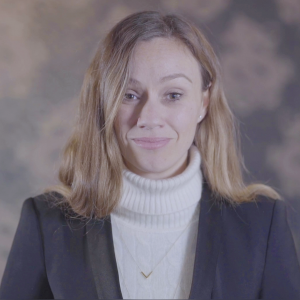
Article provided by Lynsey Whitmarsh, Director of Innovation at Hemsley Fraser
Jo Malone, Whoopi Goldberg, Holly Willoughby – three incredibly successful, inspirational women in their own right.
I relate to all three of them, and millions of others across the globe, in that we all have dyslexia.
Having dyslexia doesn’t mean that I’m unable to grasp complex notions or that I’m not academic. It simply means that I encounter a greater number of hurdles in the learning process – but challenges are there to be overcome.
It means that it’s difficult for me to wade through text-heavy workbooks in order to uncover the information I’m looking for. Instead, bite-sized study guides got me through my GCSEs, and I learned to become creative in the ways I deliver information as well. Presenting to an audience, no matter how big or small, was always my biggest fear – writing on a whiteboard in front of the class and struggling to spell a word can be extremely embarrassing – so I had to find ways of working to my strengths.
Despite this, I now work for award-winning, global learning provider Hemsley Fraser. As Director of Innovation, I play a key role in designing and developing new means of learning to provide our clients with. My relationship with learning gives me a unique perspective in overcoming the challenges that some learners are faced with – my experience with dyslexia has helped to shape the learning we deliver.
Building learning assets that are universally accessible has always been our aim, and the way we all learn has changed drastically over the years. It isn’t just those with dyslexia that struggle with traditional means of learning, many have found that new forms of learning are more appropriate for their learning style and desired skillset.
Screen-time is just one of many factors that is changing the way our brains work. We’re all finding it more difficult to concentrate for long periods of time and the effect that social media is having on dopamine levels has created a reward-seeking environment. These social changes have created obstacles that we’ve had to work around in the learning sector, much like I have had to do over the course of my life.
The trick to overcoming these obstacles, for me, has always been in resolving it on a case-by-case basis. Whereas I would avoid writing in front of a group before, I’ve come to realise that I can just as accurately get my point across by using symbols, pictures and diagrams, enabling me to communicate with confidence in what was previously a tricky situation.
Although confidence can often be a big issue for people with dyslexia, by no means is it exclusive. Particularly in the workplace, confidence can be a real issue for anyone – examples of imposter syndrome are far too common because people don’t back themselves and the skills they bring to the table.
In building what has been a successful career so far, that would be my biggest takeaway. Progressing, whether it’s in the workplace, in learning or otherwise, requires a level of self-belief that many people struggle with. Perhaps I am fortunate to also have a background in performing arts, instilling a certain level of confidence in me which goes beyond my dyslexia, but it’s something we are determined to address with our work at Hemsley Fraser.
It’s not about reaching a bar or passing a test; we want to equip people with the confidence they need in order to perform better, and it’s about doing that by providing them with relevant and interesting information in an engaging manner.
It’s important to me that everyone is able to benefit from training and development in the workplace – that’s why I do the job I do. We have to look beyond those that are deemed to be ‘good learners’ and incorporate everybody in a learning environment, no matter what their strengths or preferences are.
Nobody with the drive and capacity to learn new things should be left behind by outdated training methods. I’ve experienced it in the past, and while I was able to find ways and means of overcoming those challenges, others may need some assistance along the way. My job is about empowerment, and I couldn’t be better placed to be empowering people.
 About the author
About the author
Lynsey Whitmarsh PGDip MA is Director of Innovation at Hemsley Fraser. She specialises in roles which challenge ordinary working practices helping organisations to embrace change through innovation.








